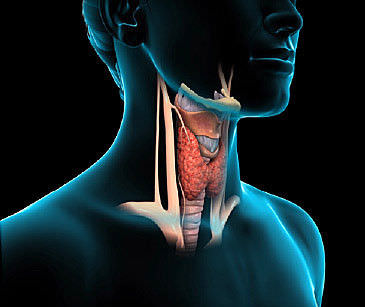Table of Contents

Hypothyroidism: What Is It?
When the thyroid gland doesn’t produce enough thyroid hormone, hypothyroidism develops. Another name for this illness is an underactive thyroid. Early on, hypothyroidism may not show any symptoms at all.
hypothyroidism vs hyperthyroidism.
The thyroid gland’s hormone production is the key differentiator between hypothyroidism and hyperthyroidism. When the thyroid gland is underactive and does not produce enough thyroid hormones for the body, it is said to be hypothyroid. The condition known as hyperthyroidism, on the other hand, is caused by overactive thyroid glands.
Symptoms of hypothyroidism versus hyperthyroidism.
If you have hyperthyroidism, you might have more energy and lose weight rather than gain it. You might experience anxiety. Weight gain, weariness, and a sluggish metabolism are all signs of hypothyroidism.
What signs might indicate hypothyroidism?
- Fatigue is one of the signs of an underactive thyroid.
- Being susceptible to the cold.
- Gaining weight.
- Constipation.
- Depression.
- Sluggish motion and thinking.
- Weakness and muscular pain.
Causes of hypothyroidism include.
When the thyroid gland doesn’t produce enough hormones, hypothyroidism develops. The following conditions or issues can result in hypothyroidism: Autoimmune illness An autoimmune condition known as Hashimoto’s disease is the most frequent cause of hypothyroidism.
Diabetic hypothyroidism is possible.
Diabetes mellitus and thyroid dysfunction are tightly related. Numerous studies have shown that thyroid issues are more common in those with diabetes mellitus and vice versa.
Without gaining weight, hypothyroidism.
Does Hypothyroidism Cause Weight Loss? Because hypothyroidism slows metabolism, which might induce weight gain, it is unlikely to be associated with weight loss. In contrast, hyperthyroidism causes your basal metabolic rate to rise (BMR).
When you have hypothyroidism, is it feasible to reduce weight?
When you have hypothyroidism, you can lose weight, but only if you’re prepared to make dietary changes. If you want to lose weight and have an underactive thyroid that causes weight gain, stay away from inflammatory foods.
Is hypothyroidism curable?
Hypothyroidism is generally a highly curable disorder. It can be controlled with consistent medication use and follow.
Hypothyroidism can cause to
Heart disease and heart failure risk can increase as a result of hypothyroidism. This is mostly because individuals with hypothyroidism frequently experience elevated levels of low-density lipoprotein (LDL) cholesterol, also known as “bad” cholesterol.
Hypothyroidism for males.
Men can also have hypothyroidism, even though women are more likely to have it. And as people age, the likelihood increases. Men who have hypothyroidism may experience a variety of symptoms, including decreased testosterone, sexual dysfunction, weight gain, and exhaustion. Hypothyroidism is diagnosed through a blood test and based on symptoms.
Hypothyroidism for pregnancy
An underactive thyroid gland is a symptom of hypothyroidism, which can occur during pregnancy. Numerous hypothyroidism symptoms resemble those of pregnancy. For instance, both have symptoms of exhaustion, weight gain, and irregular menstruation.
Hypothyroidism for newborn babies.
An underactive thyroid gland is referred to as hypothyroidism. When a baby is born unable to produce the typical quantity of thyroid hormone, congenital hypothyroidism results. About 1 in 3,000–4,000 children are born with the illness, which is typically chronic and requires lifelong care.
Hypothyroidism is caused by the deficiency of.
Hypothyroidism can be caused by insufficient iodine intake. For those who already have hypothyroidism, too much iodine might exacerbate the illness. People frequently don’t consume enough iodine in some regions of the world.
Will hypothyroidism go away?
Hypothyroidism may disappear on its own. You might not experience hypothyroidism symptoms in certain mild cases, or the symptoms could get better on their own. In other instances, your hypothyroidism symptoms will disappear soon after you begin treatment.
What food should be avoided in the thyroid?
Therefore, if you do, it’s a good idea to limit your intake of Brussels sprouts, cabbage, cauliflower, kale, turnips, and bok choy as research indicates that digesting these veggies may prevent the thyroid from utilizing iodine, which is necessary for regular thyroid function.
What foods help hypothyroidism?
The ideal things to eat if you have hypothyroidism are whole foods like lean meats, fresh fruits and vegetables, legumes, nuts, and olive oil, as well as moderate amounts of dairy products, eggs, and complex carbohydrates.
What exercises help hypothyroidism?
You can include low-impact exercises in your daily routine by biking, swimming, practicing yoga, doing Pilates, or brisk walking. Exercise for strength: Lethargy or sensations of sluggishness can be lessened by increasing muscle mass, whether through weightlifting or activities like push-ups and pull-ups.
How do you stop hypothyroidism naturally?
Your body’s vitamin B-12 levels might be impacted by low thyroid hormone levels. You might be able to restore some of the harm that hypothyroidism did by taking a vitamin B-12 pill. With the fatigue that thyroid disease can bring on, vitamin B-12 can aid.
Can you be slim with hypothyroidism?
Your metabolism slows down as a result of hypothyroidism, making it harder to shed additional pounds and keep your weight in check. However, hypothyroidism still makes it easy to lose weight.
Can stress cause hypothyroidism?
According to Dr. Wasser, the primary hormone produced in reaction to stress, cortisol, can inhibit pituitary function and prevent the thyroid-stimulating hormone (TSH) from being released, leading to hypothyroidism.